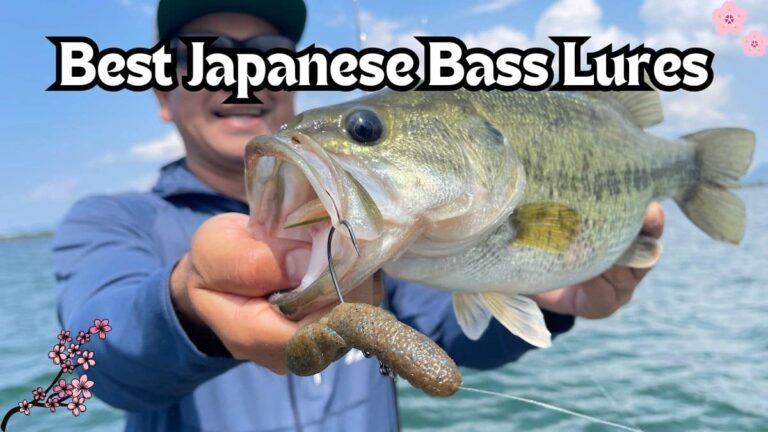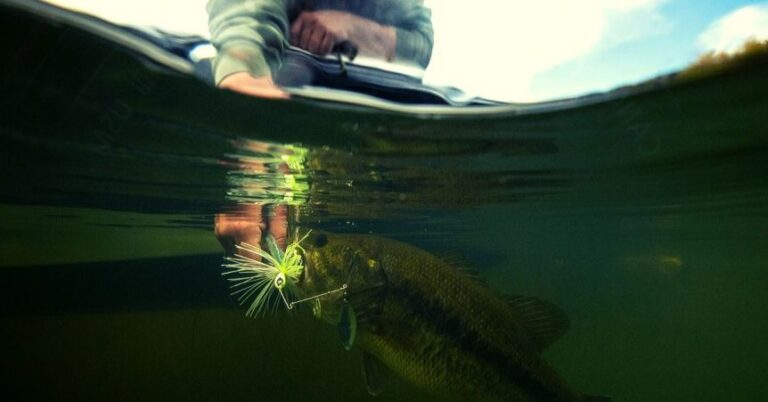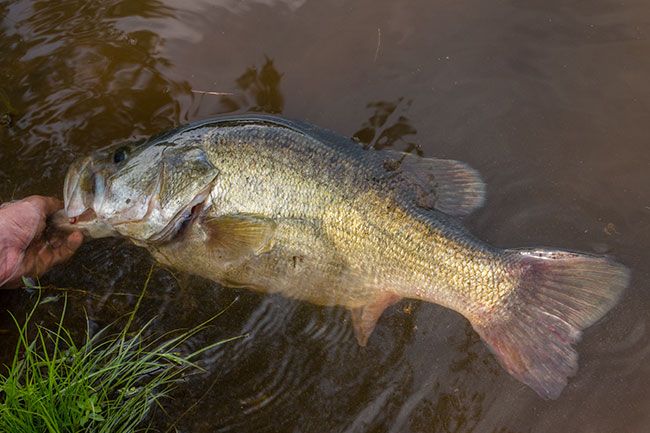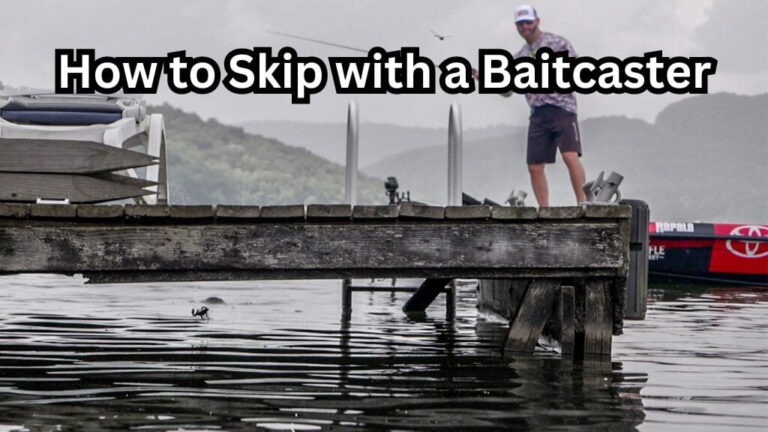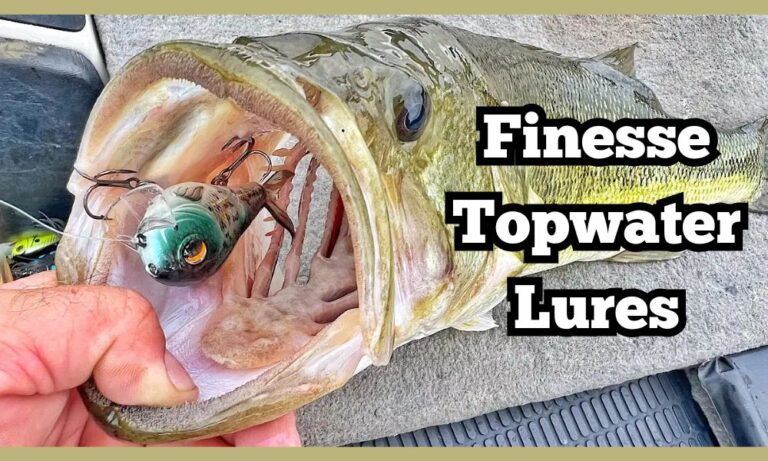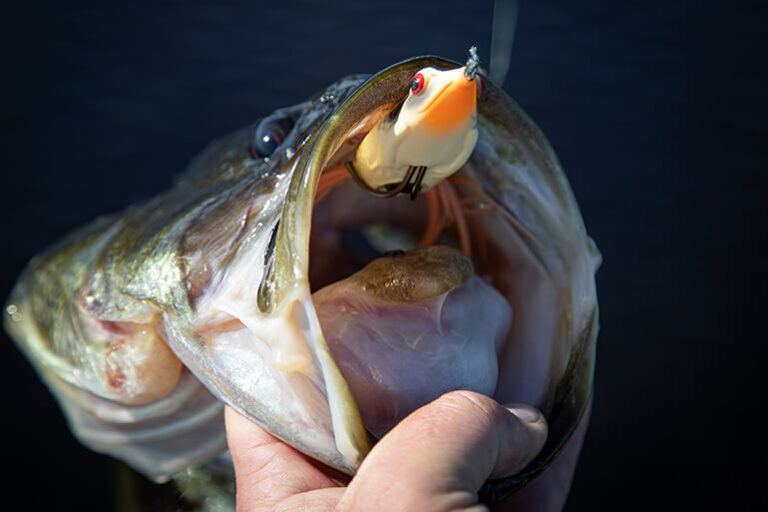Best Bass Lures for Shallow Water Fishing
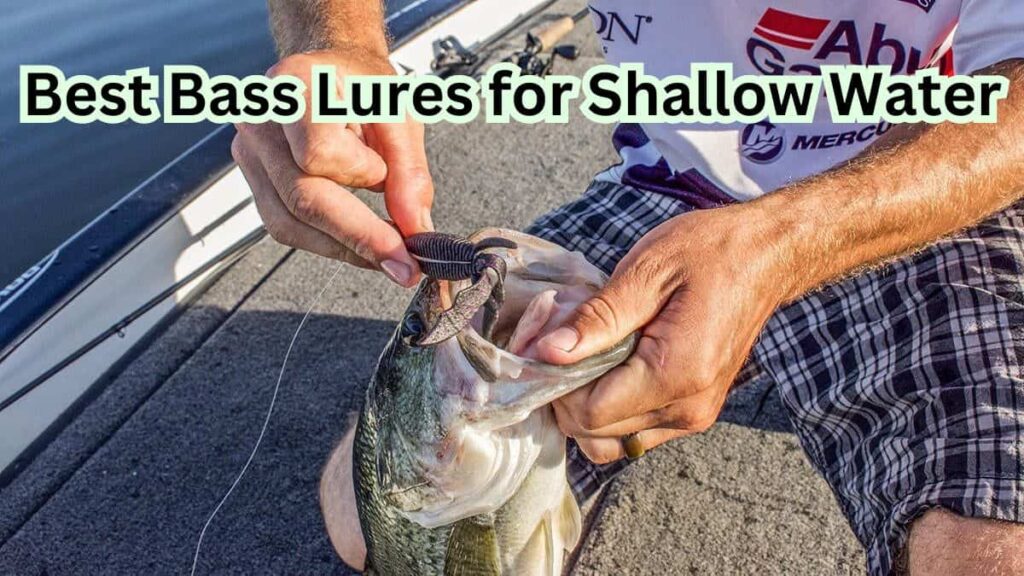
Shallow water is crucial to bass fishing. Pond anglers pretty much only have shallow water.
And even on big lakes, most bass prefer to be up in the shallow water.
So it is very important to be able to optimize these areas. And to do that, you will need to know the best bass lures for shallow water.
Breaking It Up
I’m going to break up these lures into two categories. These categories being shallow clear water and shallow muddy water.
Depending on your water clarity, your lures will be drastically different, so it is best to look at each one individually.
Best Bass Lures for CLEAR Shallow Water
Natural presentations are the key to fishing clear, shallow water. Not just the lure imitations and colors, but also the sound and vibration.
You don’t need super flashy, loud, or thumping lures. The bass can see everything because the water is clear, and they can hear/feel everything because the water is shallow.
So keep your lures natural.
1. Paddle Tail Swimbait
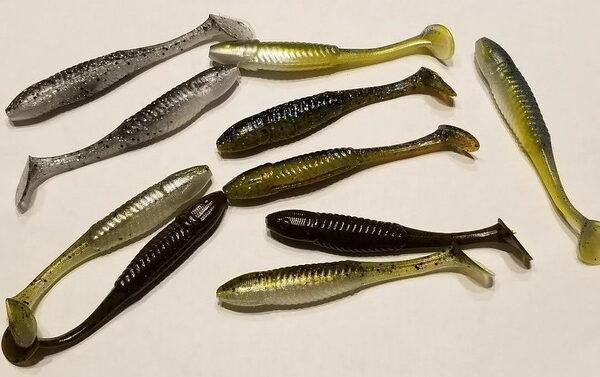
A paddle tail swimbait is my go-to bait for fish a bit faster and covering shallow water.
These swimbaits have a very natural and enticing swimming action with a lot less vibration than other moving baits.
These baits are obviously silent, which is ideal for fishing in this type of water.
Not to mention the soft plastic baits smell and taste very good, which further convinces the bass to bite.
And with the array of paddle tail swimbait rigging options, it is incredibly versatile.
2. Wacky Rig
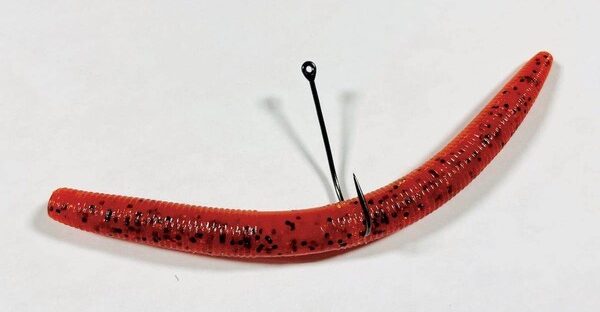
The wacky rig is probably the best finesse rig for fishing shallow water.
It doesn’t sink fast enough to be fish out deep, but in the clear shallows, bass just can’t help but eat it.
The inchworm action doesn’t exactly mimic anything that bass eat. But it is so subtle and nonthreatening that bass don’t seem to are about that.
Clear water fishing usually calls for finesse setups, and the wacky rig is definitely my favorite.
Also Read: Yum Dinger vs Senko
3. Texas Rig
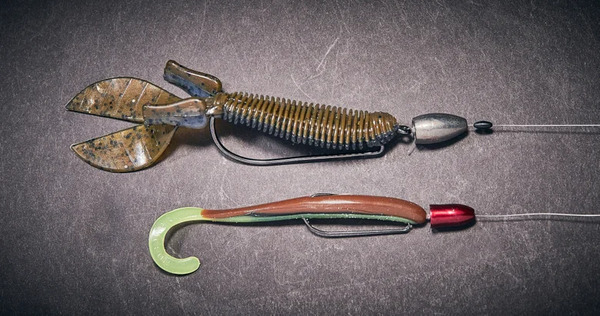
You always need a bait to flip in and around shallow cover. A Texas rig is a bit more natural than a jig, so it seems to work better in clearer water.
You can get really specific with your soft plastics to match the hatch perfectly.
Or just rig up a worm, which always seems to get bit. Your soft plastics don’t have to have much action because you are flipping to cover in clear water.
The bass will be able to see your bait just fine. So minimal action is typically best.
4. Hollow Body Frog

You always need a topwater lure on deck for fishing shallow water.
Whether you are fishing matted weeds, laydowns, or open water, a hollow body frog is perfect.
Although not typically considered an open water lure, a frog is actually very natural.
It doesn’t have loud rattles or dangling treble hooks. So in clear water, when you don’t need sound or vibration, a frog is perfect in and out of cover.
Best Bass Lures for MUDDY Shallow Water
When the water is muddy, sound and vibration play a more important role.
You want to make it easier for those bass to find your lures. Bass drop their guard a bit in muddy water because they can’t afford to be too cautions.
If they aren’t aggressive enough, they may not find food for a long time. So they are willing to chase after more noise lures.
1. Squarebill Crankbait

I guarantee that any “shallow water” list that you find or video that you watch will have a squarebill crankbait towards the top.
These lures were made specifically to be a shallow water search bait. They dive about 2-4 feet deep depending on you gear, and put off loads of vibration.
You can feel the thump and wobble through your rid tip. You can reel the bait just above the bottom or fish it all the way down and bounce it off rocks and mud.
And with the two treble hooks, you aren’t going to miss many bites.
2. Flipping Jig

The jig is going to play the same role as the Texas rig does. This is your flipping bait that you use to target specific structures.
The advantage of the jig is that it is a bigger profile. This means that when it is moving in the water and the skirt is pulsating, the jig is moving a lot of water.
This helps the bass find it. And the jig is obviously incredibly weedless, making it the perfect lure for picking apart wood, docks, lily bads, and other cover.
3. Swim Jig

A swim jig is kind of the finesse lure on this list. Of course, a swim jig is not a finesse lure.
But it doesn’t have loud rattles, flashy blades, or overpowering vibration. In the context of muddy water, it plays the role of a finesse or paddle tail swimbait.
The good thing about a swim jig is that because of the size and skirt, it displaces a lot more water.
This makes it easier to find and hone in on for the bass. And of course, a swim jig is weedless.
So you can cover lots of water, even throughout wood and grass.
4. Popper
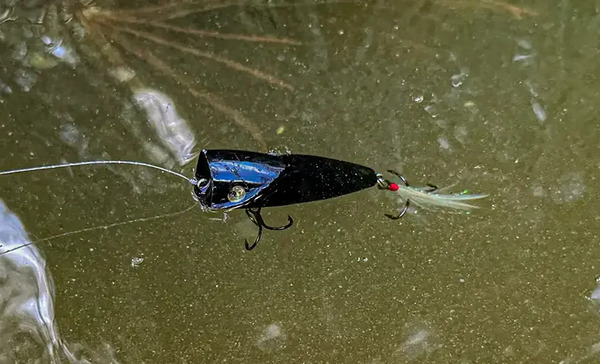
Like I said earlier, you’re going to need a topwater option. And you can’t beat a popper in shallow, muddy water.
The popper makes loud and distinct popping sounds which all the near by bass can hear.
This sound paired with the fact that it can be fished very slowly and kept in the strike zone make a popper lethal.
When I was growing up, the popper was my absolute favorite lure to use. I would catch tons and tons of bass when fishing my local ponds.
And ponds are pretty much always shallow, with lots of muddy water. The popper is incredibly effective and loads of fun to use.
When to Fish Shallow Water
If you are a pond fisherman, you don’t really have any other choice. Most ponds are very shallow all throughout.
This is one reason the above lures are fantastic pond fishing options. But if you are a lake or river angler, you can fish shallow for most of the year.
All the way from the end of the pre-spawn to the late fall months. Most bass prefer to be up shallow.
There is more food, oxygen, and shelter for them. So unless it is the winter months, you should be bass fishing in shallow water.
Reeling this In
Mastering shallow water bass fishing is crucial for anglers.
Clear water calls for natural lures like paddle tail swimbaits, wacky rigs, Texas rigs, and hollow body frogs, while muddy water requires sound and vibration-focused lures such as squarebill crankbaits, jigs, swim jigs, and poppers.
Knowing when to fish shallow, typically preferred by bass for most of the year, is key to success.
By choosing the right lures and techniques, anglers can optimize their results in shallow water environments.

